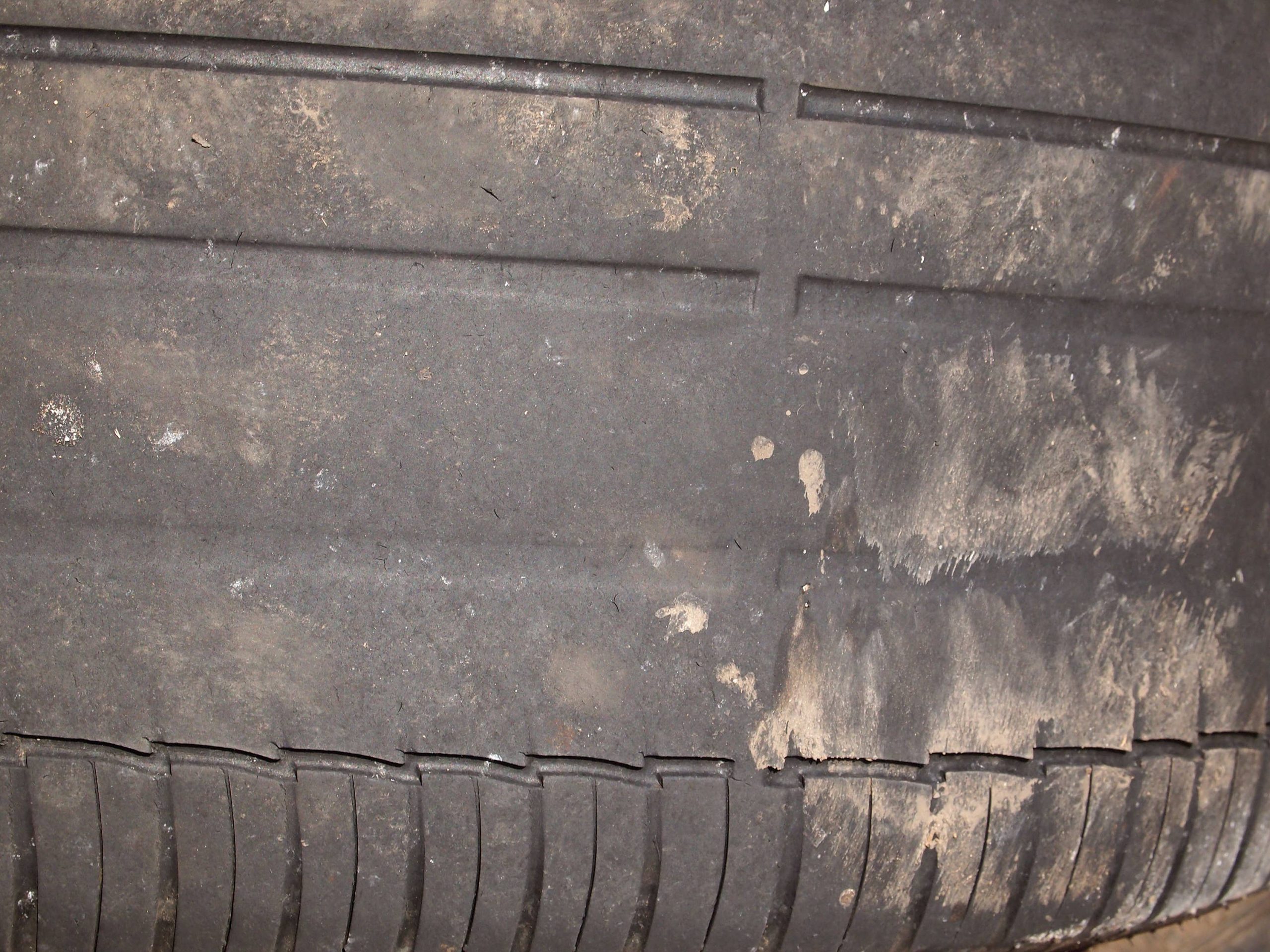The number of UK vehicles with illegal or near-illegal tyre tread depth has soared in 12 months, new figures indicate.
Motoring services company Halfords said 6.5% of the vehicles it checked in April had at least one tyre with tread depth below the permitted minimum, up from 3.8% in the same month a year earlier.
For tyres on the borderline of legal levels, the proportion rose from 7.0% to 7.8% over the same period.
Halfords believes the increase is due to a rise in the number of potholes and the impact of the cost-of-living crisis.
The company, which inspects around 10 million vehicles a year for MoTs and servicing, said if its figures are representative of all vehicles on UK roads then more than 4.2 million have tyres with illegal or near-illegal tread depth.
Tread is the grooved section of tyres which comes into contact with the road.
In the UK, the legal minimum depth is 1.6mm.
Low tread tyres are more susceptible to punctures and blowouts, and have a detrimental effect on fuel economy, braking and steering.
Halfords chief executive Graham Stapleton said: “There’s a perfect storm of increasingly poorly maintained roads, caused by the squeeze on public finances, and increasingly worn tyres, caused by the squeeze on people’s pockets.
“Now more than ever we need to make it affordable for people to stay safe.
Halfords is offering customers the option of having tyres replaced now and deferring almost all of the cost until next year, interest-free.
Steve Gooding, director of the RAC Foundation, said: “For all the hi-tech features modern cars now contain, our safety is still dependent on the four small patches of rubber that connect them to the road.
“The condition of our tyres is safety-critical and well worth the matter of minutes it would take drivers to quickly check that they have enough tread and are correctly inflated.
“Hard-pressed households looking to save money might want to take a chance on when to get their car tyres replaced, but running on bald rubber is surely a risk too far.”
The AA said it received more than 52,000 call-outs to vehicles stranded due to faults likely to have been caused by potholes in April, up 29% on the same month in 2022.
The cost of bringing pothole-plagued local roads in England and Wales up to scratch has been estimated at £14 billion.

